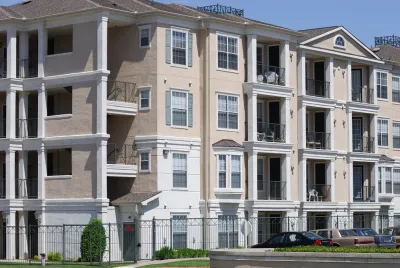Improving housing affordability and boosting housing production requires more than just eliminating single-family zoning.

Zoning reform, particularly the elimination of single-family zoning in favor of higher density, has been at the forefront of efforts to reform U.S. land use planning and improve housing affordability. “But identifying the land-use policies that most effectively add housing is harder than it seems,” write Yonah Freemark and Lydia Lo in Bloomberg CityLab. “Mounting evidence indicates that one-off reforms such as eliminating single-family-only zoning aren’t adequate. To make meaningful progress in building homes, municipalities have to do more.”
To achieve the Biden administration’s goals, Freemark and Lo recommend that the federal government “require that local governments seeking grants both show that their zoning changes are actually producing additional housing units, and also that their reforms include the full array of land-use policies that affect housing affordability,” warning that “a one-size-fits-all strategy won’t be effective or equitable.”
While permitting more ‘missing middle housing’ is “a good step forward,” the authors write that “it will not increase access to housing unless those units get built.” Pointing to an example from Minneapolis, the article notes that “Between 2018 and 2021, according to city data, permits for small apartment buildings doubled, but only to 81 total housing units in those types of structures — a tiny figure in the context of the city’s 180,000 households.”
The authors go on to say that “Drawing attention to these middling effects does not invalidate Minneapolis’s reform,” but “other, less-prominent changes Minneapolis made in the previous years were much more effective in increasing the city’s housing stock.” These changes include legalized accessory dwelling units (ADUs) and the elimination of parking requirements, which led to a doubling of the number of permitted housing units from 2015 to 2020.
Freemark and Lo describe how the federal government can encourage effective zoning reform and land use regulations that addresses the needs of each community and demonstrably increases housing production, noting that “Aligning all elements of land-use policy is necessary to make meaningful progress.”
FULL STORY: Effective Zoning Reform Isn’t as Simple as It Seems

Analysis: Cybertruck Fatality Rate Far Exceeds That of Ford Pinto
The Tesla Cybertruck was recalled seven times last year.

National Parks Layoffs Will Cause Communities to Lose Billions
Thousands of essential park workers were laid off this week, just before the busy spring break season.

Retro-silient?: America’s First “Eco-burb,” The Woodlands Turns 50
A master-planned community north of Houston offers lessons on green infrastructure and resilient design, but falls short of its founder’s lofty affordability and walkability goals.

Test News Post 1
This is a summary

Analysis: Cybertruck Fatality Rate Far Exceeds That of Ford Pinto
The Tesla Cybertruck was recalled seven times last year.

Test News Headline 46
Test for the image on the front page.
Urban Design for Planners 1: Software Tools
This six-course series explores essential urban design concepts using open source software and equips planners with the tools they need to participate fully in the urban design process.
Planning for Universal Design
Learn the tools for implementing Universal Design in planning regulations.
EMC Planning Group, Inc.
Planetizen
Planetizen
Mpact (formerly Rail~Volution)
Great Falls Development Authority, Inc.
HUDs Office of Policy Development and Research
NYU Wagner Graduate School of Public Service




























